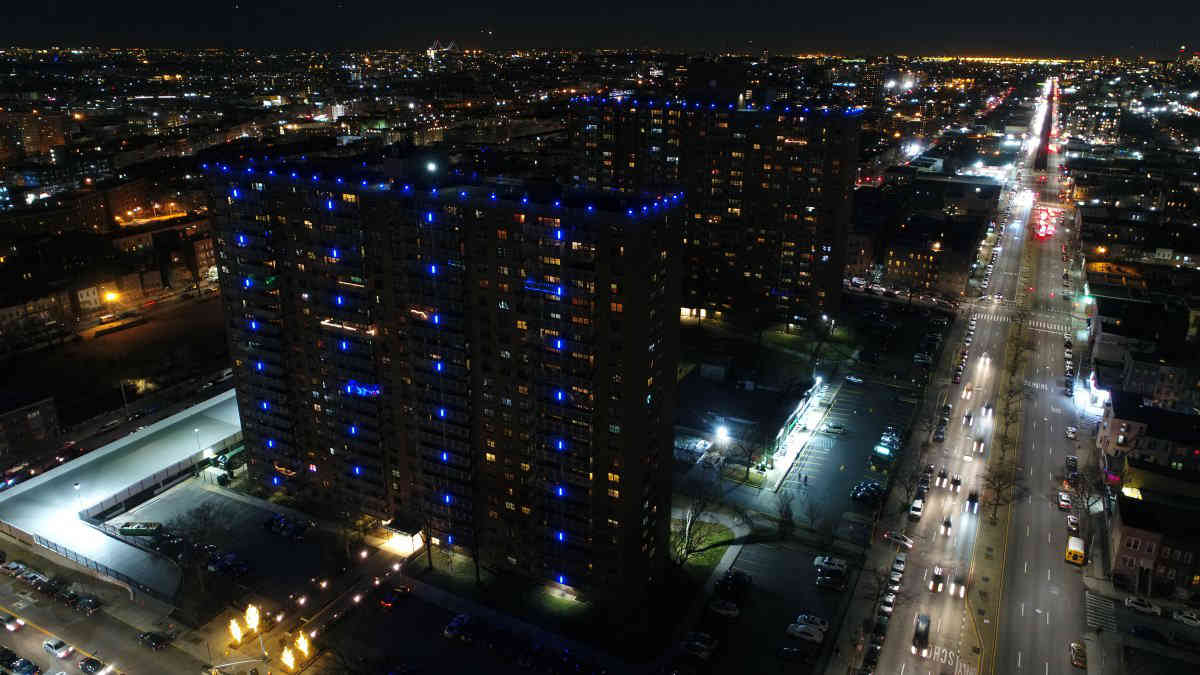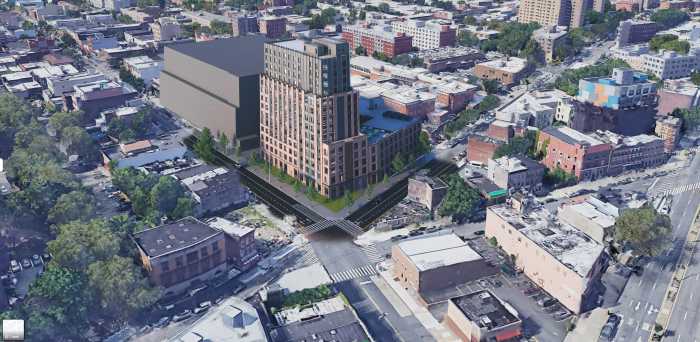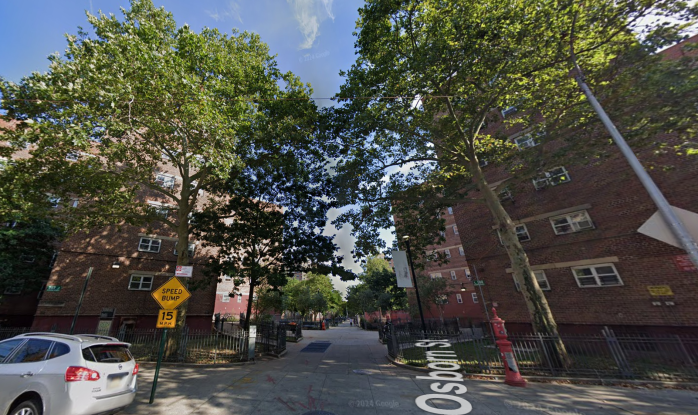The state must reject a landlord’s application to install facial recognition technology at two rent-stabilized apartment towers in Brownsville, a group of tenants demanded on May 1.
More than 130 tenants filed their legal opposition to Queens-based landlord Robert Nelson of Nelson Management Group’s application with the state’s Homes and Community Renewal — the authority that oversees rent-regulated properties — to install the biometric scanners at Atlantic Plaza Towers off Atlantic Avenue, which would require residents to let scanners register their unique facial features at the door of the building prior to entry and would allow the owner unfettered access to their private information, according to one of the complainants’ attorneys.
“The ability to enter your home should not be conditioned on the surrender of your biometric data, particularly when the landlord’s collection, storage, and use of such data is untested and unregulated,” said Samar Katnani of Brooklyn Legal Services.
Nelson applied to install the devices by Kansas-based firm StoneLock in the summer of 2018, which he says will increase security at his 22-story twin buildings on Rockaway Avenue and Thomas S. Boyland Street.
The technology scans a unique heat map of each person’s face which a company video argues does not reveal a person’s identity or gender to the naked eye.
StoneLock provides its technologies to residential buildings and a variety of other industries, including banking, healthcare, transportation, and data rooms, according to spokeswoman Anna Stallmann, who declined to disclose any specific customers.
The devices would replace the current key fob system, whereby the more than 700 residents have two fobs — one for an outside and one for an inside door — in addition to a sometimes-manned security guard desk behind the inner door, according to the opposition’s filings.
There are also several surveillance cameras in the building monitoring the residents.
A spokesman for the landlord told this paper that the company wants to replace the current security system because they fear the fobs can be copied and that people can gain unauthorized access.
“We are concerned these fobs can be copied and people who do not have the right or invitation to be in the building can gain entry. The proposed new upgraded system should keep this problem from occurring,” said Chris Santarelli.
But facial recognition has frequently misidentified people who are not white and male, which could cause difficulties for the apartment residents, who are predominantly people of color and women, according to one academic.
“Research on facial recognition systems has consistently found bias against individuals who do not present as white males — which means gender and racial minorities in this demographically diverse neighborhood who have already complained about invasive scrutiny are now at risk of being locked out of their own homes,” Rashida Richardson of the Artificial Intelligence Now institute at New York University said in a statement.
An owner seeking to modify services in a rent-regulated building must first file an application with the authority’s Office of Rent Administration, which is currently reviewing the request, according to a spokeswoman.
“HCR’s Office of Rent Administration today received Brooklyn Legal Services’ objections on behalf of the tenants to the owner’s application for service modifications, and this application continues to remain under review,” Charni Sochet told this paper in a statement via email.
The tenants began getting notices in the mail last fall that their the landlord planned to introduce facial recognition, according to a Gothamist report, and one longtime resident that the management group has not been forthcoming with details about the new system and what happens to their biometric information and is trying to push out current tenants and replace them with wealthier newcomers.
“We know next to nothing about this new system and our landlord refuses to sufficiently answer our questions about how the system works, what happens to our biometric data, and how they plan to address accuracy and bias gaps,” said Icemae Downes. “We don’t believe he’s doing this to beef up security in the building. We believe he’s doing this to attract new tenants who don’t look like us.”
The state authority does not have the jurisdiction to adequately protect the tenants in this case, due to the lack of regulation governing this new technology, according to Katnani, who added that he believes bureaucrats should nevertheless deny Nelson’s application.
“We are in uncharted waters with the use of facial recognition technology in residential spaces and HCR does not have the jurisdiction or authority to adequately protect tenants,” the legal eagle said. “We hope that HCR does the right thing and rejects this landlord’s application which poses a serious threat to tenants’ privacy and well-being.”

























